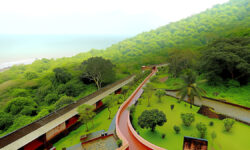The Archaeological Survey of India (ASI) has taken proactive measures to protect the tomb of Mughal emperor Aurangzeb in Maharashtra amidst concerns of extremist threats.
Aurangzeb, who ruled over the Mughal Empire from 1658 to 1707, is buried in a marble mausoleum located in Khuldabad, Maharashtra. The site has historical and cultural significance, drawing visitors and historians from around the world.
ASI, responsible for the preservation and protection of the nation’s monuments, has heightened security at Aurangzeb’s tomb following intelligence reports of potential extremist threats. The proactive approach aims to ensure the safety of the historical site and prevent any potential acts of vandalism or destruction.
‘ASI is committed to safeguarding India’s rich heritage and historical sites. We have implemented additional security measures at Aurangzeb’s tomb and are working closely with local authorities to maintain its safety and integrity,’ stated an ASI spokesperson.
The protection of Aurangzeb’s tomb holds significance against the backdrop of past incidents where historical sites have fallen victim to acts of vandalism and destruction by extremist groups. ASI’s swift action reflects the commitment to preserving India’s diverse heritage and confronting the challenges posed by extremism.
Despite the concerns, the ASI assures the public that Aurangzeb’s tomb remains open to visitors, allowing them to appreciate the historical and architectural marvel while ensuring their safety within the premises.
While the specific nature of the threat remains undisclosed, the ASI continues to work closely with intelligence agencies and local law enforcement to monitor and address any potential risks to Aurangzeb’s tomb and other historical sites across the country.
The proactive measures undertaken by the ASI underscore the ongoing dedication to safeguarding India’s historical treasures and preserving its rich cultural legacy amidst evolving security challenges.









